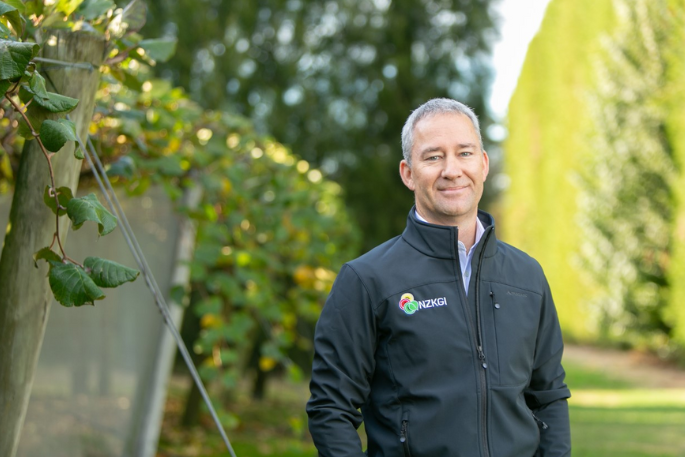A "critical" chemical for the kiwifruit industry is no longer being proposed as becoming a classified carcinogen by the Environmental Protection Authority.
This week, New Zealand Kiwifruit Growers, NZKGI, responded to the EPA's social impact assessment report on the effects of their proposed hydrogen cynamide ban, a spray used by kiwifruit growers known as hi-cane.
Hi-cane,used once per year on kiwifruit orchards, is described as a "critical chemical" for the success of the kiwifruit industry.
It promotes uniform bud break of flowers ultimately maximising the production of high quality kiwifruit, according to NZKGI.
NZKGI opposes a ban on hi-cane and is of the view that any ban with any phase-out period is unnecessary and inappropriate.
"A ban would create uncertainty and stifle investment," says an NZKGI spokesperson.
NZKGI CEO Colin Bond says the EPA's proposed ban of Hi-Cane is "unjustified".
'Hi-Cane is a vital tool for kiwifruit growers and would result in significant losses for both the kiwifruit industry and the wider economy if it was banned. As New Zealand's largest horticultural export, kiwifruit continues to play a vital role in regional economic development around the country and makes a significant contribution to New Zealand's economic performance.”
An independent economic report commissioned by NZKGI found that banning Hi-Cane in New Zealand would cost the economy $1.56 billion.
'The magnitude of the economic and related benefits derived from the use of hydrogen cyanamide should be described as massive and NZKGI is of the view that the EPA's Update Report does not adequately consider the wellbeing effects on individual growers or the impacts on national wellbeing that would arise from a ban of Hi-Cane.”
Bond does however note that the SIA report highlights that the effects on Māori growers and their whanau and communities would be significant should hi-cane be banned.
The SIA report also recognizes the removal of the carcinogenicity classification for Hi-Cane, and NZKGI accepts that appropriate training combined with industry led agreed continuous improvement actions will ensure that the risk for all spraying operators is kept as low as possible.
Further on the topic of spray, NZKGI is of the view that the role of effective shelter in reducing spray drift ought to be recognised and provided for in relation to the proposed buffer zones.
In addition to the impact of Hi-Cane on people, the sprays' impact on birds and soil organisms has also been an important component of the EPA's reassessment, according to NZKGI.
Based on the expert reports, NZKGI is of the view that the risk assessments relating to birds and soil organisms are overly conservative, and in light of the new information in
these reports, the risks to birds and soil organisms should be re-assessed and the risk ratings reduced.
The EPAs full SIA report, and NZKGIs response to this report are available on the EPA website. These reports will be complied with other evidence and a hearing, including presentations from experts, growers and other industry stakeholders will be held in March to decide on the future of Hi-Cane.



3 comments
Hi Cane
Posted on 16-02-2023 12:50 | By Robin
When I brought my orchard about 28 years ago there was no bird life. I have since built a house and planted a garden with lots of trees. There is now an abundant of birds especially native birds which also go into the kiwifruit. Hi cane has caused no problems what so ever!
Yowsers
Posted on 16-02-2023 13:24 | By Ziggaty
And the biggest reason for changing Hi-Canes status turns out to be money. I wonder if we will ever see the report on the high incidence of growers past and present having health issues over and above the rest of the community. Cancer, loss of smell........???????????
Impact On Human Health?
Posted on 17-02-2023 07:07 | By Thats Nice
A lot of talk about money in this article but nothing on human health effects from this spray, only the "impact on birds and soil organisms" mentioned but not in detail I note. Why has this spray been banned in other countries?
Leave a Comment
You must be logged in to make a comment.